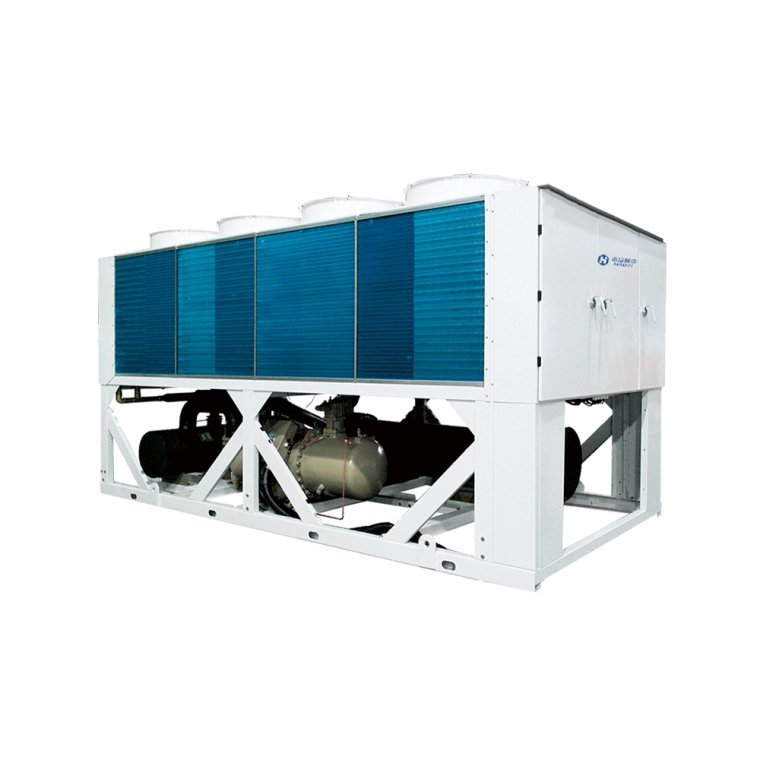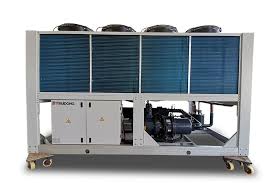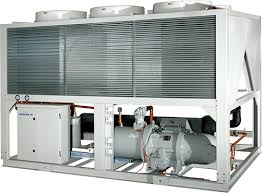
News
What Are the Industrial Applications of Air-Cooled Heat Pump Chillers
In modern industrial settings, energy efficiency and temperature control are essential to productivity, safety, and sustainability. Among the various technologies used to achieve precise thermal management, air-cooled heat pump chillers stand out for their versatility, cost-efficiency, and environmental performance. These systems play a crucial role in various industrial processes by providing both cooling and heating using ambient air as a heat exchange medium.
In this article, we will explore the working principles of air-cooled heat pump chillers and highlight their key industrial applications across multiple sectors.
Understanding Air-Cooled Heat Pump Chillers
Air-cooled heat pump chillers are HVAC systems that use ambient air to dissipate heat, rather than relying on water or external cooling towers. What sets them apart from standard chillers is their dual functionality—they can provide both cooling and heating by reversing the refrigeration cycle, similar to a heat pump.
These systems consist of components such as:
1. A compressor to pressurize the refrigerant
2. An evaporator for heat absorption
3. A condenser to release or absorb heat from the air
4. Expansion valves to regulate refrigerant flow
Because of their ability to work in a reversible cycle, they are highly effective in temperate climates where both heating and cooling demands are moderate and fluctuate with seasons.

1. Manufacturing and Process Industries
One of the applications of air-cooled heat pump chillers is in industrial manufacturing. Temperature-sensitive processes require stable thermal conditions to ensure product quality, process efficiency, and equipment longevity.
Applications include:
1. Injection molding and plastic extrusion: These processes require precise cooling to solidify plastic molds quickly and consistently.
2. Metalworking and machining: Cooling lubricants and tools is vital to prevent overheating, deformation, or failure.
3. Textile production: In dyeing and weaving, specific temperature and humidity levels must be maintained.
4. Food processing and packaging: These facilities often need both chilled environments for storage and heated water for cleaning and sterilization.
The dual-functionality of air-cooled heat pump chillers makes them especially attractive for manufacturers that operate in regions with variable climates.
2. Pharmaceuticals and Laboratories
In the pharmaceutical and biotech industries, precise temperature regulation is crucial for both production and storage. Air-cooled heat pump chillers are commonly used for:
1. Controlling the temperature of bioreactors and fermenters
2. Maintaining climate conditions in cleanrooms
3. Storing vaccines, drugs, and sensitive materials
4. Maintaining laboratory instrument accuracy
These systems help ensure compliance with GMP (Good Manufacturing Practice) and FDA regulations, which require rigorous control of environmental conditions during production and storage.

3. Data Centers and IT Infrastructure
As the demand for digital services grows, so does the need for efficient cooling in data centers. Electronic equipment like servers generates enormous heat, and failure to remove it can result in downtime, data loss, and hardware damage.
How air-cooled heat pump chillers are used:
1. Cooling server rooms without the need for complex water piping systems
2. Providing free cooling during colder months by switching to ambient air
3. Operating as backup systems to support primary water-cooled units
These chillers offer flexibility, scalability, and reduced water usage—important advantages in urban environments or water-scarce regions.
4. Commercial Buildings and Complexes
Although the focus here is industrial use, it’s worth noting that large commercial facilities often have industrial-grade HVAC needs. Shopping malls, airports, exhibition centers, and hospitals may all benefit from air-cooled heat pump chillers due to their ability to heat and cool simultaneously in different parts of a building.
This is especially important in:
1. Hospitals, where different departments require different temperatures
2. Hotels, where guest comfort and energy efficiency must be balanced
3. Shopping centers, where tenant areas and common spaces have unique demands
The modular nature of these systems also makes them easy to install on rooftops or building exteriors without major infrastructure changes.
5. Chemical and Petrochemical Industries
Chemical processing often involves exothermic and endothermic reactions that demand tight thermal regulation. Air-cooled heat pump chillers are used to:
1. Maintain reaction vessel temperatures
2. Cool down distillation columns
3. Provide heating or cooling water to different sections of the plant
In explosive or flammable environments, air-cooled systems are preferred over water-based systems due to lower risks associated with water leaks and contamination.
6. Breweries and Beverage Production
In beverage manufacturing, particularly in breweries, wineries, and dairy plants, temperature plays a vital role in fermentation, pasteurization, carbonation, and storage.
Key uses include:
Controlling fermentation temperatures to produce consistent flavor profiles
Chilling storage tanks for beverages
Heating cleaning solutions for sterilization
Since air-cooled heat pump chillers can switch between heating and cooling modes, they help optimize operations and reduce energy costs.
Advantages of Air-Cooled Heat Pump Chillers in Industrial Use
1. Energy efficiency: Ability to use heat recovery and ambient air reduces energy consumption.
2. Lower installation cost: No need for cooling towers, pumps, or water treatment systems.
3. Reduced water usage: Ideal for arid or drought-prone regions.
4. Flexible installation: Suitable for rooftops, outdoor areas, or remote sites.
5. All-season operation: Provides both heating and cooling in one unit.

Conclusion
Air-cooled heat pump chillers are an integral part of modern industrial operations that require reliable, efficient thermal management. Their ability to provide both heating and cooling, coupled with minimal infrastructure requirements and energy efficiency, makes them a smart investment for a wide variety of industries—from pharmaceuticals to food processing to IT infrastructure.
As global industry continues to prioritize sustainability and operational efficiency, the role of air-cooled heat pump chillers will only grow. For businesses aiming to cut energy costs, reduce water consumption, and maintain high-performance standards, these systems represent a future-ready solution.
Shenzhen Haoyi Refrigeration Technology Co., Ltd. is a branch of Hong Kong Haoyi Group. It was established in 1998 and is a foreign-invested enterprise in Taiwan, China.
Shenzhen Haoyi Refrigeration Technology Co., Ltd. is engaged in air-conditioning and refrigeration equipment, industrial refrigeration, cold storage, and heating equipment. The main products are: medium and low temperature screw chillers, low temperature ethylene glycol chillers, low temperature brine chillers, water-cooled vortex chillers, and air-cooled screw chillers.
If you want to know more about our products, welcome to contact us.
E-mail:[email protected]











